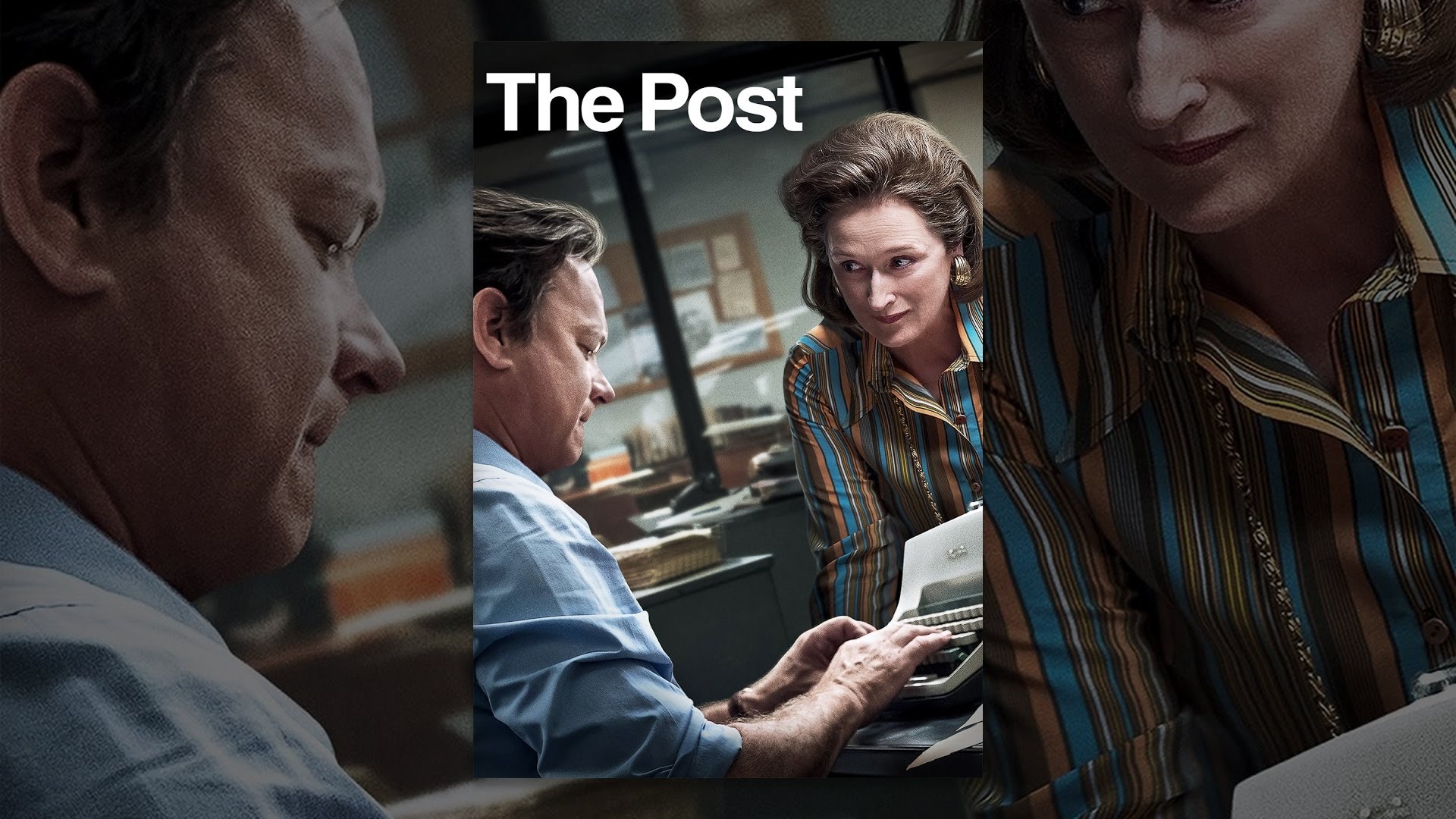The Post: A Turning Point for Journalism
When we think about influential films, The Post (2017) stands out as a cinematic chronicle that captured the tenacity and bravery of journalism. Released at a time when trust in media waned, the movie not only showcased The Washington Post’s relentless pursuit of the truth during the Pentagon Papers scandal but also highlighted the critical role independent journalism plays in a democratic society. The film unmasked governmental pressure and set a storyline that would resonate across generations.
Directed by Steven Spielberg and starring Meryl Streep and Tom Hanks, The Post tells the story of the newspaper’s struggle to publish classified documents revealing the U.S. government’s secret involvement in the Vietnam War. This pivotal moment in journalism sparked debates about press freedom and the obligation to hold power accountable. If ever there was a film that encapsulated the heart and soul of the press, it’s this one. The Post broke barriers; it wasn’t simply about journalism; it symbolized the potential consequences of a government that attempts to silence dissent.
The legacy of The Post doesn’t just loom large over Hollywood; its ethical paradigms influenced countless modern independent outlets. It established a path for journalists and filmmakers alike — pushing the narrative that the quest for truth must not be abandoned despite fierce opposition. Today, we find similar struggles within journalism, echoing the tenacity and commitment embodied by The Post against a backdrop of misinformation and corporate interests.

The Legacy of The Post: How it Inspired Modern Independent Outlets
Reflecting on the impact of The Post, we can pinpoint several key outlets inspired by its daring spirit. These media outlets have carved their own niches, embodying a determination to uphold truth and integrity against the backdrop of modern challenges:
Known for its fierce commitment to investigative journalism, The Guardian has surged as an essential voice in uncovering issues surrounding government and corporate misconduct. Aligning closely with the audacity displayed by The Post, its coverage of events like the Edward Snowden revelations demonstrated the importance of accountability in the digital era.
Founded in 1986, The Independent emerged as a symbol of journalistic freedom, opting for a digital-first approach. This innovative strategy resembles The Post’s adaptability in the face of evolving media landscapes, proving that independent voices can thrive, even when challenged by mainstream narratives.
Focusing on a conservative perspective, Daily Wire interjects with strong commentary and analysis, flourishing in today’s politically charged climate. Much like The Post, it exemplifies how commentary can supplement hard news, catering to audiences hungry for diverse viewpoints.
Though not a news outlet, the narrative surrounding Heath Ledger’s struggles with mental health birthed crucial discussions in independent journalism platforms. Ledger’s life reminds us of the significance of personal stories; they amplify voices that might otherwise stay unheard, akin to The Post’s exploration of vital yet sensitive subjects.
This publishing company has made waves by distributing acclaimed investigative narratives, including accounts that dissect events like the Pentagon Papers scandal itself. The Penguin helps shed light on journalism’s profound societal impacts and reflects The Post’s role in uncovering crucial stories in a compelling manner.
All these platforms view independence as vital; they’re parallel to The Post’s legacy in uncovering the truth and challenging the status quo. The spirit of investigation and advocacy thrives amongst these voices, reinforcing the notion that journalism remains a bedrock of freedom.
The Empowerment of Digital Journalism Post-2016
The rapid rise of digital technologies post-2016 marked another pivotal chapter in the journalism story. Social media platforms, in particular, changed how news travels and how reporters can engage with audiences.
Platforms like Twitter allow news to break in real-time, often outpacing traditional prints. This immediacy has pressured outlets like The Post to pivot quickly, balancing speed with accuracy – a classic reflection of early sensationalist efforts that often prioritized clicks over facts.
Sites including Medium have democratized the process, allowing everyday citizens to share vital stories side-by-side with established institutions. This collaborative model resonates deeply with The Post’s philosophy of nurturing public engagement and empowering individuals to participate in journalism actively.
Many independent journalists utilize online platforms like Substack to share their unique perspectives. This shift mirrors The Post’s cause of promoting diverse opinions, emphasizing that journalism isn’t just for the big names; it belongs to everyone.
The implications from The Post’s era now play out in vibrant landscapes, leading to an empowered generation of reporters determined to uncover the hidden stories that shape our world.

The Role of Investigative Journalism in Maintaining Democracy
In the throes of modern challenges, investigative journalism must uphold the core principles established by The Post. The importance of unmasking corruption, social injustices, and institutional failures cannot be overstated, as these elements are vital to a functioning democracy.
The New York Times’ exposé of the Harvey Weinstein scandal rings with the same fervor as The Post’s defiance within Washington. Similarly, ProPublica’s reporting on immigrant conditions in detention centers showcases the power of brave journalism — mirroring the diligent spirit of The Post, continually shining a spotlight on uncomfortable truths.
Societal issues today often escape traditional media’s grasp, but the fervor seen in The Post’s reporting reminds journalists why their work matters. Without fearless inquiries, critical social narratives may continue to be buried beneath layers of bureaucracy and indifference.
Investigative journalism empowers citizens as well, stirring outrage and action against injustices. It fuels movements, shapes policy changes, and informs public opinion, remaining deeply interwoven with democratic values.
As we champion these ideals, we must actively work to promote the power of investigative journalism, reminding ourselves that the foundation laid down by The Post continues to be essential as society grapples with pressing issues.
The Future of Journalism Beyond “The Post”
Looking ahead, all media outlets must cling to the valuable lessons imparted by The Post. The ultimate mission remains the same— to inform, educate, and empower the public. Yet, the methods to achieve this have undergone substantial transformation.
Political polarization and the rise of misinformation necessitate a continued commitment to integrity in journalism. The spirit of inquiry embodied by The Post lives on in new generations ready to tackle modern challenges head-on.
Amidst rapid technological changes, the focus must be on sustaining journalistic ethics that resist the tides of misinformation and sensationalism. As we honor The Washington Post’s legacy, let us embrace the pursuit of truth as an ongoing endeavor — one that shapes the future of journalism, invigorating an essential pillar of democracy.
In embracing this challenge, we don’t just witness the evolution of journalism; we participate in its pulse, ensuring the values that define The Post continue to resonate loudly in the fabric of society. The ink may dry, but the passion for truth is an unquenchable flame that will persist as we navigate the ever-changing narrative of journalism.
The Post That Changed Journalism Forever
The Story Behind ‘The Post’
Did you know that ‘The Post’ isn’t just about the newspaper but also about the intense moments leading up to the release of the Pentagon Papers? This gripping film illustrates how the courage and tenacity of journalists, like those portrayed by Meryl Streep and Tom Hanks, shine through adversities. Interestingly, the dynamic between Streep’s character and her team reflects the inner workings often highlighted in stories about tenacious figures, like the unusual history of Inspector Gadget, who creatively tackles complex challenges with a lighthearted twist.
Moreover, the movie served as a reminder of Peter Baker’s impactful journalism. This film was a turning point, much like the recent surprise hit, Godzilla Minu sone, which showcases how unexpected narratives can redefine genres. In both instances, it’s about pushing boundaries and unearthing the truth, whether it’s about war or the ever-pressing stories of our times.
Impact on Modern Journalism
The fierce spirit of the journalists depicted in ‘The Post’ parallels the relentless drive seen in popular culture today. Take the documentary on Senna, for example, which highlights the same kind of passion and determination in its portrayal of the legendary Formula 1 driver. Just like the filmmakers behind ‘The Post, they push limits to present stories that resonate deeply. By examining history’s high-stakes moments, this film encourages audiences to reflect, a sentiment also echoed in quirky projects like Unfrosted, which gives a fresh spin on everyday issues.
In a similar vein, consider the digital age’s impact on journalism. Nowadays, fans of sports, like those checking the Wrexham Vs Sutton united Standings, can access refreshing updates instantly. The immediacy of information fuels debates and discussions, ensuring that viewers remain engaged with the latest happenings. As journalism evolves, films like ‘The Post’ serve as critical reminders of the responsibilities that come with such freedom—an element that couldn’t ring truer, especially in our current media climate.
The Legacy of ‘The Post’
In many ways, ‘The Post’ has carved out its spot in cinematic history for championing ethical journalism. The urgency that characterizes its storyline parallels the innovation seen in tech ventures, like the contributions made by Super Micro computer, which are reshaping industries and allowing for faster information dissemination. Just as the filmmakers sought to explore a vital chapter in journalism, innovations in technology drive the way we consume and interpret news.
Lastly, it’s fascinating to think about the lasting impressions we’ve absorbed from films like ‘The Post’. With memorable characters akin to Tiana from Disney’s beloved tales, the story demonstrates how individual courage can bridge gaps and inspire masses. The intent to shape narratives echoes in various forms, reminding us that while the mediums may differ, the pursuit of truth remains a common thread. In the end,The Post’ isn’t just a film—it’s a call to action for every consumer of news, urging us to dig deeper and remain vigilant in our quest for accuracy.

Is The Post based off a true story?
Yes, The Post is based on a true story. It focuses on the real-life efforts of The Washington Post to publish the Pentagon Papers, which were classified documents detailing the U.S. government’s involvement in Vietnam.
Is the movie The Post about Watergate?
The movie isn’t directly about Watergate but is set against the backdrop of a political climate that eventually leads to the Watergate scandal. It highlights the importance of a free press in holding the government accountable.
Is The Post worth watching?
Definitely! The Post is a gripping drama featuring stellar performances by Tom Hanks and Meryl Streep, and it sheds light on the critical role of journalism in democracy, making it quite a compelling watch.
What is the plot of The Post?
The plot centers on Katherine Graham, the first female publisher of The Washington Post, and her team as they decide whether to publish the Pentagon Papers, revealing deep government deception regarding the Vietnam War.
What did the Pentagon Papers reveal?
The Pentagon Papers revealed that the U.S. government had misled the public about the Vietnam War, including the extent of American involvement and the likelihood of success, which sparked widespread outrage when published.
Have Tom Hanks and Meryl Streep done a movie together?
Yes, Tom Hanks and Meryl Streep appeared together in The Post, where they both delivered powerful performances, capturing the intensity of a pivotal moment in American journalism.
Who is Tom Hanks in The Post?
In The Post, Tom Hanks plays Ben Bradlee, the executive editor of The Washington Post, who pushes for the publication of the controversial Pentagon Papers, showcasing his commitment to the freedom of the press.
Which newspaper kept the Watergate scandal alive?
The Washington Post was crucial in keeping the Watergate scandal alive, with dedicated reporting that uncovered numerous details about the scandal and its implications for the presidency.
Are all the president’s men historically accurate?
All the President’s Men is largely considered historically accurate, as it details the investigative reporting of Bob Woodward and Carl Bernstein, which led to uncovering the Watergate scandal.
What was the first movie Tom Hanks was in?
The first movie Tom Hanks appeared in was a film called “He Knows You’re Alone,” released in 1980, marking the beginning of his successful acting career.
What movies does Meryl Streep play in?
Meryl Streep has starred in numerous films, including classics like “The Devil Wears Prada,” “Sophie’s Choice,” and “Julie & Julia,” showcasing her incredible versatility as an actress.
Is there a movie about Katharine Graham?
Yes, there’s a movie about Katharine Graham titled “The Post,” where Meryl Streep portrays her, highlighting her unique challenges and triumphs as a female leader in the newspaper industry.
What did Ben Bradlee do in The Post?
In The Post, Ben Bradlee, portrayed by Tom Hanks, plays a critical role in championing the decision to publish the Pentagon Papers, demonstrating his fearless approach to journalism.
Is The Post on Prime a true story?
The Post on Prime is based on true events, focusing on the struggle of The Washington Post’s editorial team to publish the Pentagon Papers, highlighting the importance of press freedom.
What is the movie about Tom Hanks about politics?
The movie featuring Tom Hanks about politics could refer to “The Post,” which focuses on journalistic integrity and its impact on political discourse during a tumultuous time in history.
Is postal Based on a True Story?
Yes, Postal is based on true events, though it stirred up quite a bit of controversy, as it portrays the life of the infamous John Allbeury and the events surrounding the postal services.
Is The Paperboy based off a true story?
Yes, The Paperboy is also based on a true story, inspired by real events in the life of journalist and author Pete Dexter, capturing the gritty undertones of Southern life and crime.
What is the story of Katharine Graham?
Katharine Graham’s story is one of perseverance and leadership; she faced immense challenges in running The Washington Post, especially during the publication of the Pentagon Papers and Watergate scandal, ultimately becoming a symbol of women’s empowerment in media.
Is the post on Amazon Prime a true story?
Yes, The Post is available on Amazon Prime, and it’s rooted in real historical events surrounding the publication of the Pentagon Papers, ensuring a gripping watch for viewers interested in journalism and its impact on society.

![The Post | Official Trailer [HD] | 20th Century FOX](https://www.cinephilemagazine.com/wp-content/cache/flying-press/b5ecbcb693d7d152b5cf1cc42b5c6cfc.jpg)





